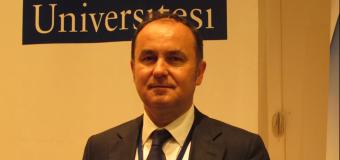04/10/2010
Professor Selim Çetiner
Sabancı University
Chairman of the Higher Education Council, Yusuf Ziya Özcan, claims “The United States and Israel can destroy a nation within two decades with their genetically engineered produce.” According to the press, Mr. Chairman says, “A large portion of the seeds of the tomatoes and wheat grown in Turkey is imported from the USA and Israel because we do not have domestic seeds. As a Turkish intellectual, I sometimes feel utterly small. Can’t we cultivate our own tomato seeds that we need? Our forefathers used to cultivate their own seeds and grew produce for generations. Why don’t we do the same? Why don’t we have a research institute on seeds, led by some of our universities? We can’t know where this is headed. There is something called genetic programming; they could very well take a seed and implant some genetic mechanism in it. We could catch diseases that we know nothing about. With this, it is possible to destroy a generation in time. They could implant such things that will kill people who have eaten it within 20 years. Such dangers exist.”
We agree that Turkey is not yet where it is supposed to be in terms of seed cultivation. However, the claim that our forefathers used to cultivate their own seeds and grow their own produce for generations is one of the sweet yet inaccurate tales spread by the “cult of amateur growers” that has gained ground lately. Genetically programming a tomato to kill off a nation is one of the slogans used by the luddites as a scare tactic against people unknowledgeable in the matter, keeping the debate away from scientific grounds.
With the deregulation of the seed industry in Turkey in 1986, the latest varieties and hybrid seeds were introduced to Turkey, enabling the country to feed its rapidly-rising population. Obtained by the latest in breeding technologies, these varieties increased yield per unit area, helping to increase the income of our farmers. It is true that seed cultivation in Turkey did not develop adequately during this process. The most important reason is the lack of support for policies and R&D efforts in this field. It should not be overlooked that the private sector took important steps in seed breeding, and that some hybrid varieties are now being exported.
It is widely accepted that in order to secure agricultural production and related economic and political stability, governments must make extremely stable policies.
It is mandatory for Turkey to ensure a healthy and adequate diet for its population, research all technologies, including modern biotechnology, that will increase its agricultural production, adopt European and global norms as its objective standards, and develop the appropriate ones to perfection. The first step to this task is the expedient amendment of the Biosafety Law adopted on September 26th, 2010 – a law that makes biotechnological research crucial to converting our coveted genetic resources to economic benefit impossible, and is in open contradiction of the Acquis Communautaire and global norms. This is what we need to gain independence in seed cultivation. A forbidding approach that halts science and ignores the common views of the institutional authorities in global science is irrational, and is what will make Turkey dependant on imported produce.
In summary, Mr. Chairman should not heed the fringe groups plagued with a propensity towards conspiracy theories, and lead the way to the correction of the Biosafety Law that cripples the efforts of universities and institutes that will conduct research in the light of scientific data. Public discussions based on science are an absolute requirement for the advancement of this cause.

